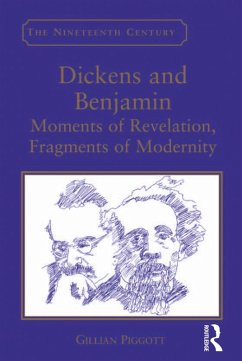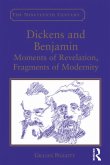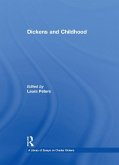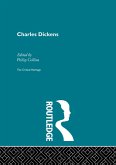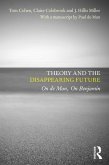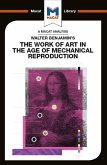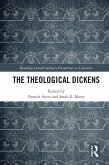Placing the works of Charles Dickens and Walter Benjamin in conversation with one another, Gillian Piggott argues that the two writers display a shared vision of modernity. Her analysis of their works shows that both writers demonstrate a decreased confidence in the capacity to experience truth or religious meaning in an increasingly materialist world and that both occupy similar positions towards urban modernity and its effect upon experience. Piggott juxtaposes her exploration of Benjamin's ideas on allegory and messianism with an examination of Dickens's The Old Curiosity Shop, arguing that both writers proffer a melancholy vision of a world devoid of space and time for religious experience, a state of affairs they associate with the onset of industrial capitalism. In Benjamin's The Arcades Project and Dickens's Sketches by Boz and Tale of Two Cities, among other works, the authors converge in their hugely influential treatments of the city as a site of perambulation, creativity, memory, and autobiography. At the same time, both authors relate to the vertiginous, mutable, fast-paced nature of city life as involving a concomitant change in the structure of experience, an alteration that can be understood as a reduction in the capacity to experience fully. Piggott's persuasive analyses enable a reading of Dickens as part of a European, particularly a German, tradition of thinkers and writers of industrialization and modernity. For both Dickens and Benjamin, truth appears only in moments of revelation, in fragments of modernity.
Dieser Download kann aus rechtlichen Gründen nur mit Rechnungsadresse in A, B, BG, CY, CZ, D, DK, EW, E, FIN, F, GR, HR, H, IRL, I, LT, L, LR, M, NL, PL, P, R, S, SLO, SK ausgeliefert werden.

